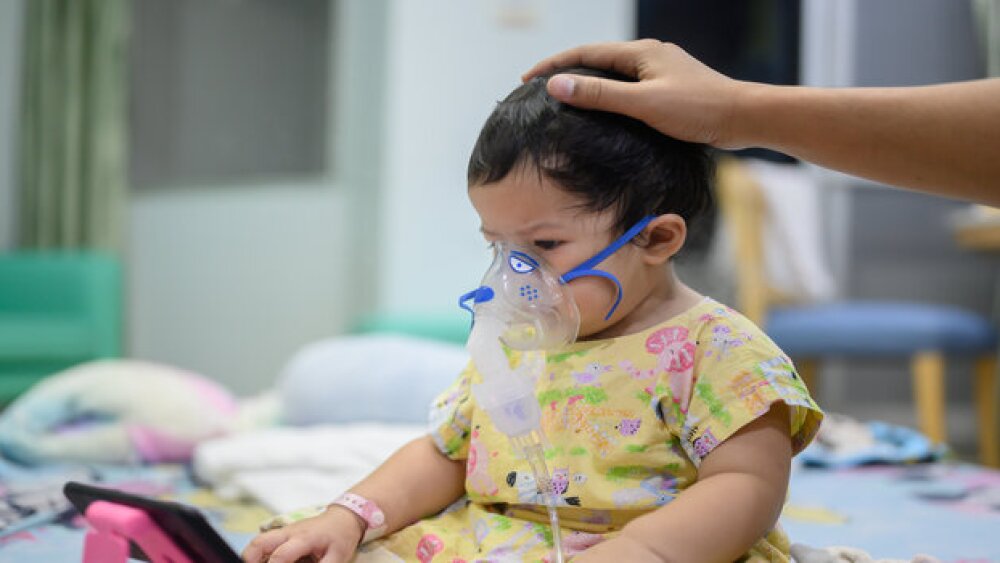AstraZeneca and Sanofi’s respiratory syncytial virus immunizing antibody Beyfortus reached effectiveness of 90% against infection-related hospitalization in infants, according to the Centers for Disease Control and Prevention.
Pictured: Infant in the hospital wearing a ventilator mask/iStock, graphixchon
New data from the Centers for Disease Control and Prevention showed that AstraZeneca and Sanofi’s preventive antibody Beyfortus (nirsevimab) strongly cut the risk of respiratory syncytial virus-associated hospitalization in infants.
Using data from nearly 700 infants, the CDC found that Beyfortus had a 90% effectiveness against hospitalization associated with respiratory syncytial virus (RSV) infection. Symptoms of acute respiratory illness manifested from seven to 127 days after Beyfortus administration, with a median time of 45 days to symptom onset.
The findings support CDC’s current recommendation that “all infants should be protected by maternal RSV vaccination or infant receipt of nirsevimab,” the agency wrote in its report. The results also indicate that Beyfortus is “highly effective against RSV-associated hospitalization in infants entering their first RSV season.”
Still, the CDC warned that Beyfortus’ actual effectiveness could be weaker during a full RSV season “because antibody levels from passive immunization wane over time.”
The agency also pointed to other limitations of its study, including the small number of immunized infants and RSV cases. Some babies might have also been infected by RSV before receiving Beyfortus, which could have affected its efficacy. The study’s findings were also limited to RSV-associated hospitalizations and are not indicative of Beyfortus’ effects on outpatient and emergency department visits, the CDC said.
Given via an intramuscular injection, Beyfortus is a long-acting monoclonal antibody that works by binding to the part of the virus that attaches to the host cells, blocking infection at a cellular level. This mechanism of action allows Beyfortus to induce passive immunity in infants.
Beyfortus was initially developed by AstraZeneca but Sanofi in 2017 dropped $130 million upfront for the opportunity to jointly develop and commercialize the RSV antibody.
The FDA approved Beyfortus in July 2023 for use in infants entering their first RSV season and children up to 24 months old who are at severe risk of RSV or who are entering their second season.
Since launching in the U.S., Beyfortus has brought in nearly $600 million in revenue, according to Sanofi’s fourth-quarter and full-year 2023 earnings results. Demand has quickly outpaced supply, however, especially for the 100-mg dose, which is primarily used to immunize babies before the RSV season, according to a statement from Sanofi.
In December 2023, the pharma partners promised the White House that it would provide an additional 230,000 doses of Beyfortus by January 2024, in line with the Biden administration’s efforts to make sure that immunization and vaccine doses are available before this year’s viral season.
Tristan Manalac is an independent science writer based in Metro Manila, Philippines. Reach out to him on LinkedIn or email him at tristan@tristanmanalac.com or tristan.manalac@biospace.com.






